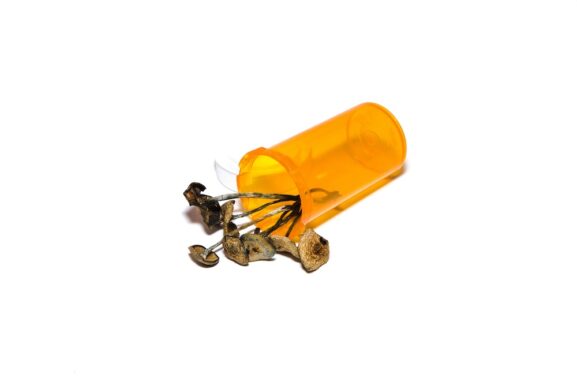How Can You Tell If A Psychedelic Integration Therapist is Trustworthy
A good psychedelic integration therapist possesses several key qualities and qualifications. Here are a few you should look for when trying to figure out if a psychedelic integration therapist is trustworthy.
New: Interested in Being Part of a Psychedelics-Focused Clinical Trial? Sign Up Here
1. Appropriate Certifications and Training
Therapists should have received specialized training in psychedelic-assisted therapies and hold relevant certifications. This ensures they have a deep understanding of psychedelic substances, their effects, and how to create a safe therapeutic environment.
Here are some appropriate certifications and training that a trustworthy psychedelic integration therapist should have:
- Certificate in Psychedelic-Assisted Therapies and Research from the California Institute of Integral Studies (CIIS)
- MAPS MDMA Therapy Training Program certification
- Fluence Certificate in Psychedelic Therapy and Integration
- IPI (Integrative Psychiatry Institute) Psychedelic-Assisted Therapy Training certification
- Certificate from the MIND Foundation’s Augmented Psychotherapy Training (APT) program
- COMPASS Pathways therapist training program certification
- Psychedelic Facilitation Certificate Program from UC Berkeley’s Center for the Science of Psychedelics
- Certificate from Naropa University’s Psychedelic-Assisted Therapies program
- PGCert in Psychedelics: Mind, Medicine, and Culture from the University of Exeter
- Training from Synthesis Institute’s Psychedelic Practitioner Core Training
It’s important to note that many of these programs require participants to already be licensed mental health professionals, medical professionals, or clergy members. Additionally, ideal candidates should have:
- A strong foundation in psychology, counseling, or psychotherapy
- Understanding of trauma-informed care
- Knowledge of harm reduction principles
- Cultural competency and awareness of diversity issues
- Ethics training specific to psychedelic therapy
- Experience with integration practices and techniques
While personal experience with psychedelics is not always required, many programs recommend it for a deeper understanding of the therapeutic process. However, any personal use should be legal and ethical within the context of training or approved research studies.Lastly, as the field is rapidly evolving, therapists should commit to ongoing education and stay updated on the latest research and best practices in psychedelic-assisted therapy
Have questions about psychedelics and psychedelic-assisted therapy? Try out the beta version of HealingChat, HealingMaps AI chatbot that takes all our vetted content, clinics and retreats to answer all your questions in a safe environment. Try the beta version now!
2. Experience and Expertise
A therapist’s experience with psychedelic-assisted therapies is crucial. They should be familiar with the specific substances you are interested in exploring and have a track record of helping clients integrate their experiences effectively.
3. Ethical Guidelines and Practices
Adherence to ethical guidelines is essential. Therapists should practice within the boundaries of the law and maintain high ethical standards to ensure the safety and well-being of their clients.
4. Therapeutic Approach
A good therapist will have a clear therapeutic orientation and approach to psychedelic integration. They should be able to explain their methods and how they can help you achieve your therapeutic goals.
Interested in MDMA Treatment? The FDA is close to approving MDMA Therapy. Get on the waiting list now!
5. Cultural Competency
Cultural competency is important in understanding and respecting the diverse backgrounds and experiences of clients. Therapists should be committed to cultural sensitivity and inclusivity in their practice.
How to Find the Right Psychedelic Integration Therapist for You
Finding the right psychedelic integration therapist involves several steps:
1. Ask Questions
When interviewing potential therapists, ask about their areas of expertise, experience with psychedelic substances, therapeutic orientation, and approach to integration. Inquire about their session fees, insurance acceptance, and any sliding scale options they may offer.
2. Reflect on Your Needs
Consider your own therapeutic goals and needs. Reflect on the specific psychedelic substances you have used or plan to use and the type of support you require for integration. This self-reflection will help you find a therapist whose approach aligns with your needs.
3. Seek Recommendations
Reach out to your primary care physician, local mental health clinics, or community organizations for recommendations. They may be able to connect you with qualified therapists who specialize in psychedelic integration therapy.
4. Evaluate Compatibility
Compatibility between you and your therapist is crucial. Ensure that you feel comfortable and safe with the therapist you choose. The therapeutic relationship should be built on trust, empathy, and mutual respect.By following these steps and considering the qualities that make a good psychedelic integration therapist, you can find the right professional to help you navigate and integrate your psychedelic experiences effectively.



